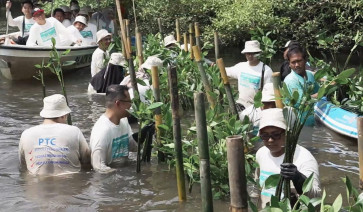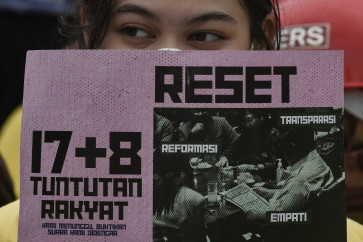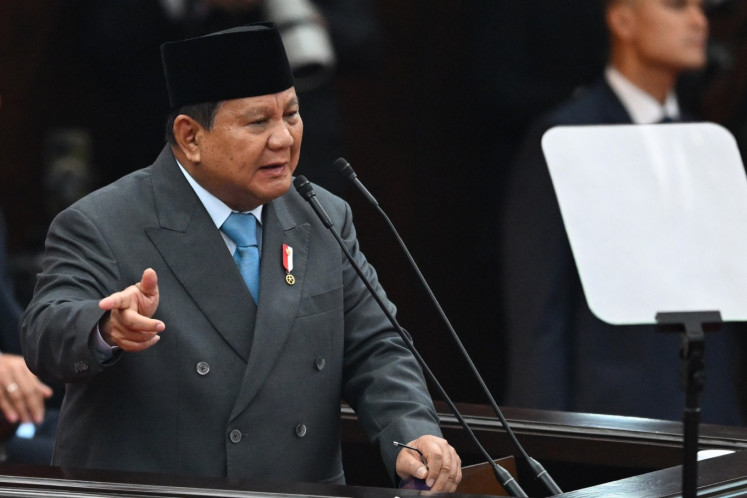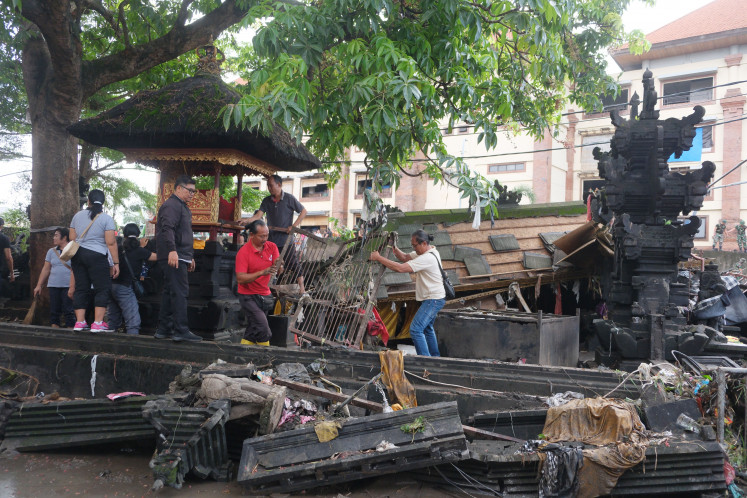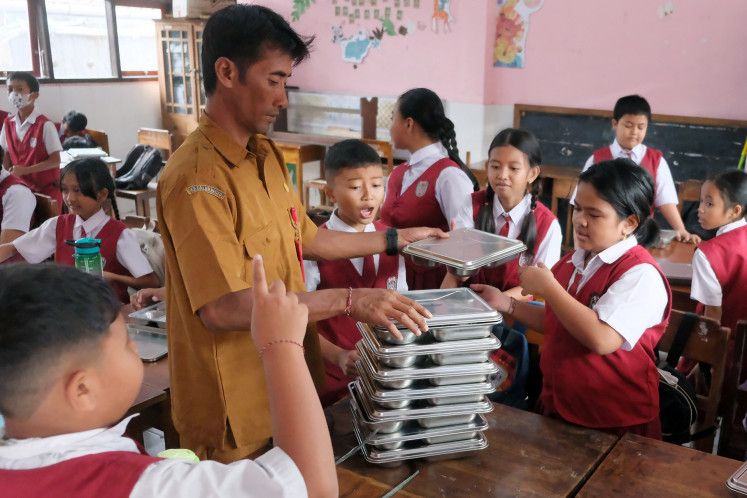Popular Reads
Top Results
Can't find what you're looking for?
View all search resultsPopular Reads
Top Results
Can't find what you're looking for?
View all search resultsView Point: Keep the internet free and let the best ideas win
India’s democracy is in chaos! That was the initial conclusion of an Indonesian journalist after reading several local newspapers and watching the reportage of TV channels during his six-day stay in New Delhi earlier this month
Change text size
Gift Premium Articles
to Anyone
I
/span>India’s democracy is in chaos! That was the initial conclusion of an Indonesian journalist after reading several local newspapers and watching the reportage of TV channels during his six-day stay in New Delhi earlier this month.
The people are persistent and even annoying! That was his early perception when he attended an international seminar in the subcontinent nation, and witnessed how the speakers and the participants from India were very eager in pinpointing the substance of their opinions.
New Delhi air is much cleaner than Jakarta! He concluded that after observing cars and other modes of transportation consume compressed natural gas (CNG) and other clean energy. Indonesia, in contrast, is a major gas producer but Jakarta is among the world’s most polluted cities.
Indians are highly educated! He was impressed by the young participants from this nation, many of whom are postgraduate students at a very young age. They eloquently expressed their arguments because from early childhood they have been accustomed to freedom of expression. They were not annoying when he paid attention to their arguments.
Indonesia needs to learn from India! It was his final statement.
The journalist is me. The Konrad-Adenauer-Stiftung (KAS) foundation invited me to participate in the 2016 East-West Center International Media Conference. I regard myself as an instant “expert” on the world’s largest democracy and the second most populous nation, although to be honest I know practically nothing about this amazing nation.
Yes, initially reading newspapers and watching TV news reports during my visit had prompted me to conclude that India’s noisy democracy is in great danger! As if India can no longer maintain its unitary state and will crumble into several independent states.
There were many images of street protests against the governments or political rivals. The politicians in the world’s largest democracy often issued fierce threats and harsh statements against their opponents.
Take the Sept. 12 of The Indian Express report on the election campaign in Punjab. Arvind Kejriwal, leader of the AAP (Common Man’s Party), threatened to jail four ministers from the ruling SAD (Supreme Akiali Party) along with Punjab Deputy Chief Minister Sukhbir Singh Badal if his party won the election in the state.
According to the report, the ministers will be severely punished and their properties seized “for allegedly driving farmers to commit suicide”. The statement was too bombastic for an outsider, because the same report did not indicate any incidents of suicide by farmers related to the government.
The same newspaper also quoted Indian National Congress Vice President Rahul Gandhi as scolding Prime Minister Narendra Modi because he said the latter only likes to visit foreign countries and take selfies with their leaders, such as US President Barack Obama and Chinese President Xi Jinping.
“Have you ever seen him [Modi] visiting a farmer’s house, hugging him or taking a selfie with him?” Gandhi shouted in a recent public appearance.
Journalists from the struggling print media industry from many parts of the world, however, may feel envious when they read Indian newspapers — such as the Hindustan Times, The Indian Express and The Statesman — because there are plenty of full-page or jacket advertisements. Many of the publications are still in the broad-sheet format and packed with, roughly, six news reports.
While Indonesians prefer to be cautious in expressing themselves in public (but are often fierce and even brutal behind the scenes), Indians are much more open and eloquent — they are often perceived as assertive and persistent — in stating their minds. While the majority of Indonesians are Javanese, I come from the Batak ethnic group who more or less share the character of Indians in public.
India is mature in practicing the value of democracy. Many outsiders may feel confused when they only depend on media reports and do not directly experience the daily life of Indians. India is indeed gigantic in terms of population, diversity and the complexity of regions.
Indonesians are much less fortunate, because the Dutch as the colonial power for more than three centuries did not leave anything significant, except language (other Dutch legacies are very debatable).
India is the world’s largest democracy and probably home to the world’s largest number of English speakers as a result of colonization by the British Empire. The Indian education system is also much more advanced than that of Indonesia. Look at the presence of many Indian scholars, scientists and professionals in prominent global corporations or the organizations of the United Nations.
Modesty and simplicity are among the characteristics of the people. It is common to meet Indian professionals wearing simple attire, and many women still preserve their love of their traditional dress. S. Narayan, the former finance secretary of India, dressed in a very modest way when he addressed the conference, as if he were an ordinary civil servant.
When I left Indira Gandhi International Airport (It was quiet because the use of loudspeakers is minimal), I had something clear in my mind: our nation needs to learn from India! Their problems are much complex than ours! Their modesty, their high standard of education and strong determination to stand on their own feet are very valuable lessons for Indonesians.
The author is senior managing editor of The Jakarta Post. He can be contacted at purba@thejakartapost.com.


